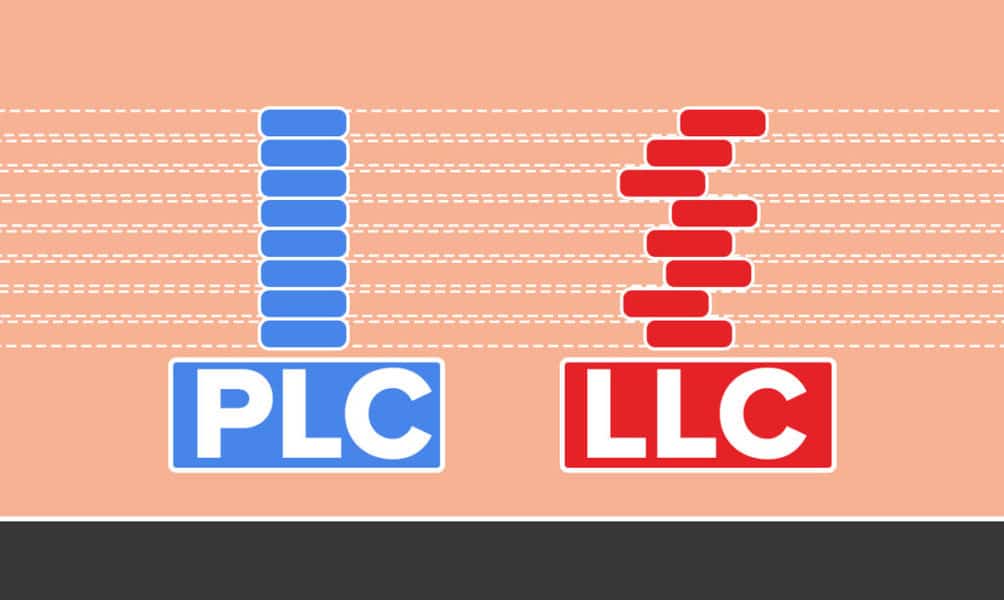You have several options if choosing an entity type for your new business. One popular selection for US business owners is a limited liability company (LLC). A less well-known option is a public limited company (PLC), which is common in the United Kingdom.
There are similarities between PLCs and LLCs, as well as a few key differences, especially when it comes to taxation. Read on to learn all you need to know about what separates PLCs and LLCs.
What Is an LLC?
An LLC is a popular business structure for startup companies due to its many benefits. An LLC provides personal liability protection, for example, so your assets are not at risk if your business is sued or cannot pay its debts.
Also, an LLC is a “pass-through entity” in taxes, meaning that the LLC itself is not taxed. Instead, income passes through the company to the LLC owners or members, who report it on their tax returns.
LLCs also offer flexibility in management, as there are few requirements regarding organizational structure.
How Does a PLC Differ from an LLC?
In the United Kingdom, a PLC is like a corporation in the United States. Every company listed on the London Stock Exchange is a PLC. Just as a corporation in the US needs to include the abbreviation “Inc” in its official name, a PLC in the UK must consist of “PLC.”
A PLC sells shares to the public, which an LLC does not. However, like the members of an LLC, the shareholders of a PLC have limited personal liability. For an entity to become a PLC, it must have at least two shareholders and have no less than £50,000 in capital.
PLCs are required to hold annual meetings and issue regular shareholder reports. Like a US corporation, PLCs are led by a board of directors. With an LLC, a board of directors is optional.
Tax Rules for PLCs and LLCs
The tax rules for a PLC are much like those for US corporations. According to UK tax law, PLCs are subject to a corporate tax rate of 19%. Additionally, PLC shareholders may be liable for taxes on any received dividends.
By default, LLCs are pass-through entities, which means income passes through to the member or members. If the LLC has only one member, it’s taxed as a sole proprietorship. If the LLC has more than one member, it’s taxed as a partnership.
Yet LLCs are unique because they can elect to be taxed as a corporation if the members decide it makes financial sense. This is done by filing an election form with the IRS. You can choose to be taxed as a C-Corp or an S-Corp.
C-Corp status means income is taxed at the current rate for corporations (21% as of late 2022), which is lower than the usual individual taxpayer rate. But keep in mind that C-Corp shareholders – who are members in the case of an LLC – must also pay taxes on their distributions. This is called double taxation.
However, members are subject to self-employment tax in an LLC taxed by default as a sole proprietorship or partnership. Once such LLC switches to being taxed as a corporation, self-employment taxes no longer apply.
Similarly, self-employment taxes do not apply to members with S-Corp status, which is the main advantage of electing S-Corp status. S-Corp status also means that your LLC will still be a pass-through entity and not subject to corporate taxes.
Summary
PLCs and LLCs are very different business entities. Starting a PLC in the United States is impossible, but you can form an LLC or a corporation. Your choice depends on your preferences and the unique needs of your business.
If you’re undecided, it’s good to consult an attorney or tax professional and choose the entity type that’s best for your business.




